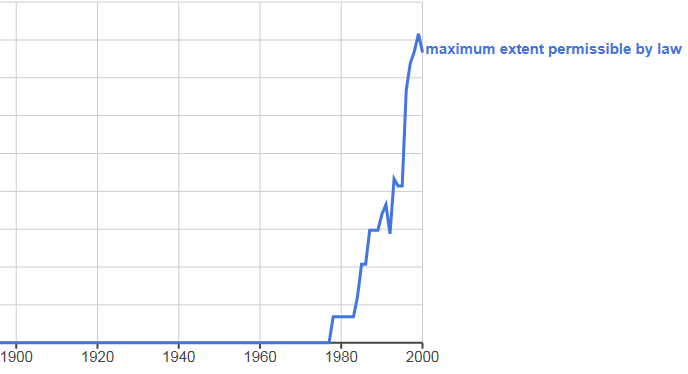To the fullest extent permissible by law
|
The JC’s guide to writing nice.™
|
It won’t be long in the life of a young lawyer before she comes across this delightfully flannelled subordinate clause:
none of the Issuer, Arranger or Programme Counterparties, to the maximum extent permissible by law, accepts any liability for the contents of this prospectus...
She might pause briefly, on that first fumbling encounter, and wonder what legal mischief this incantation is calculated to ward off. Does the law assume that any contractual provision is deemed, unless you say to the contrary, to be half-hearted in its intent — a choked nine-iron back onto the fairway from behind a tree, and not a full-throated drive at the green?
God only knows, is this commentator’s remark. God probably doesn’t know either. But a bit of research suggests that this gem found its way into the forensic world some time in the late 1970s. And as you’ll see to the right[1], it has flourished since its introduction.
The lilly-liveredness of this statement makes you shudder.
